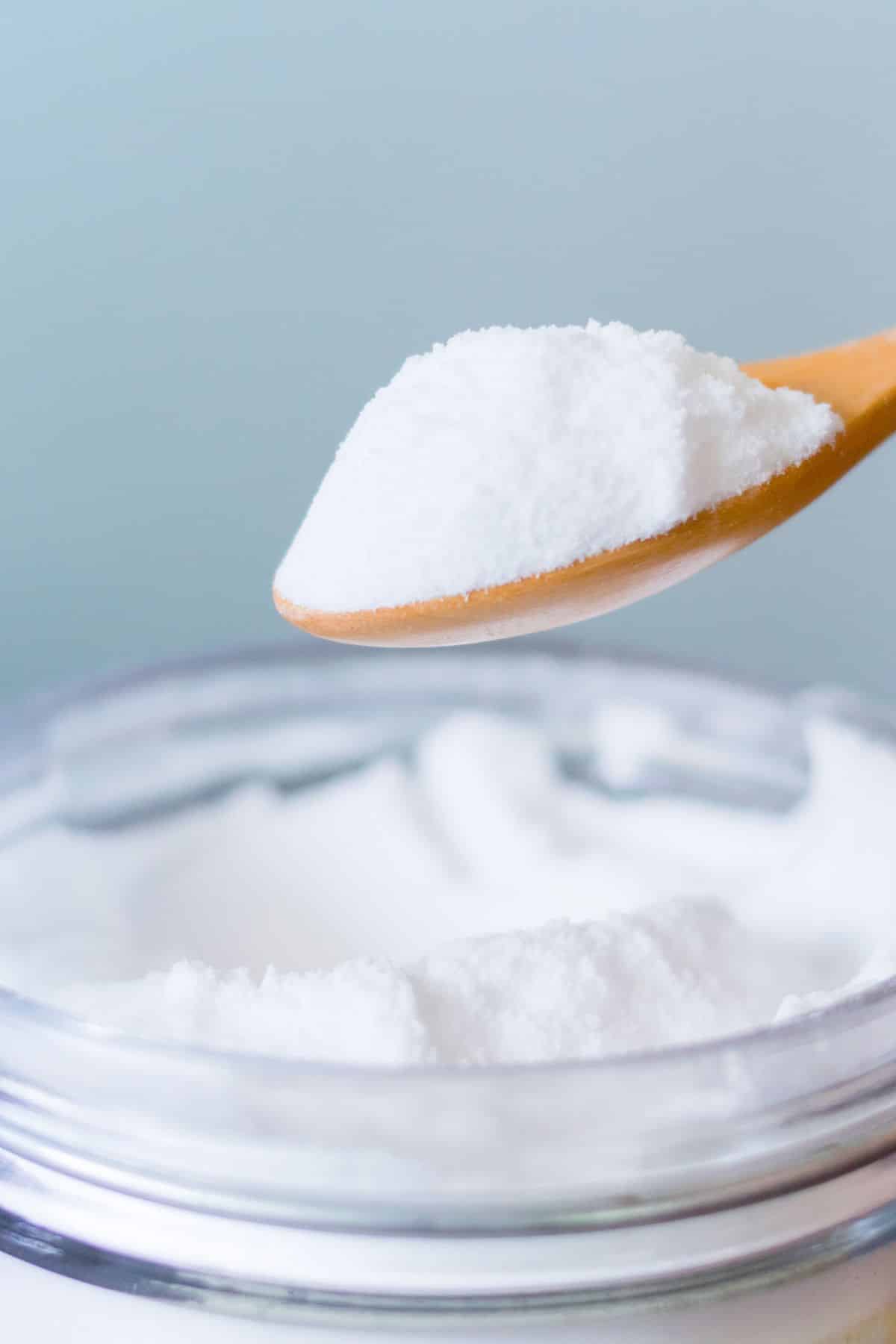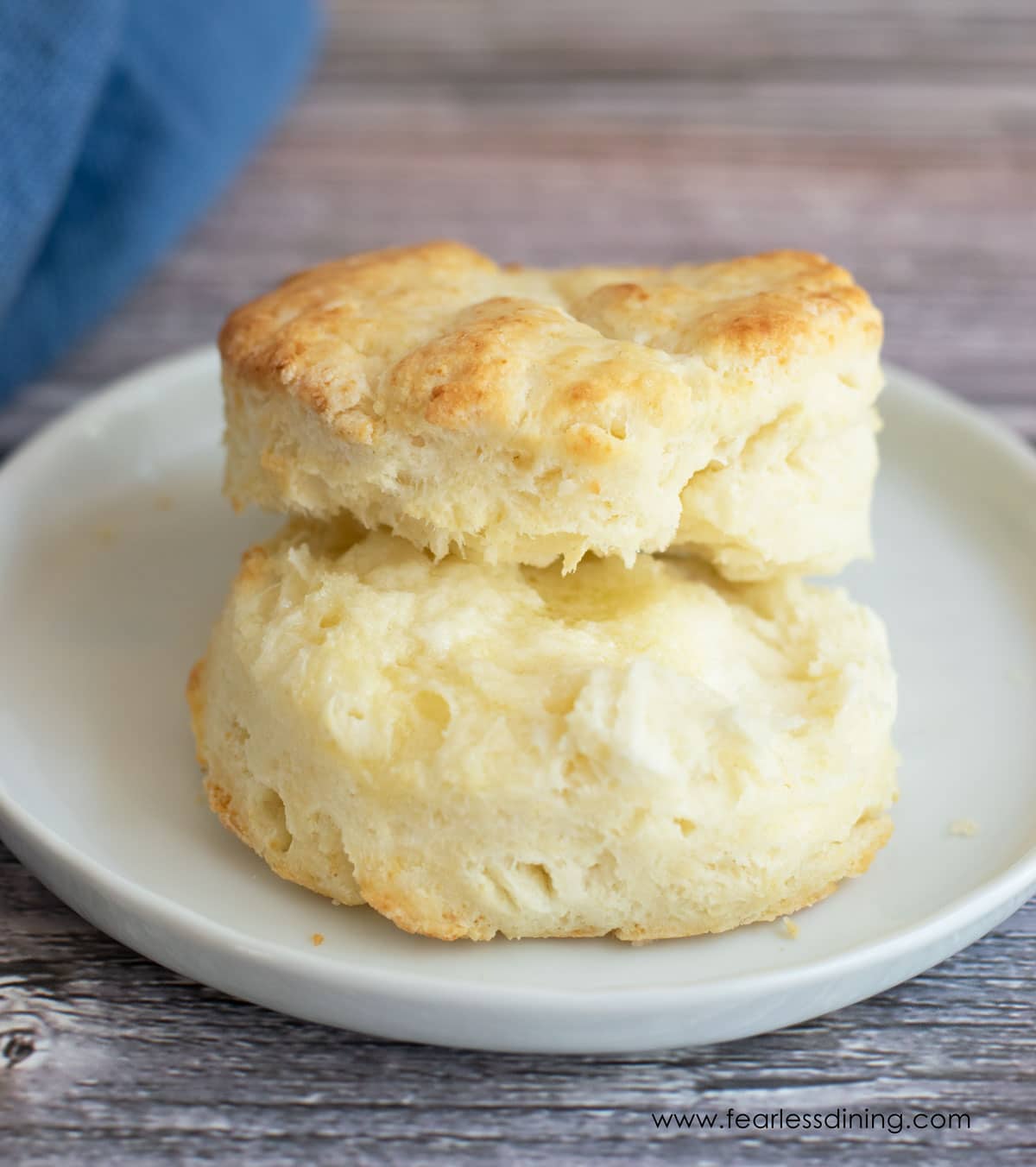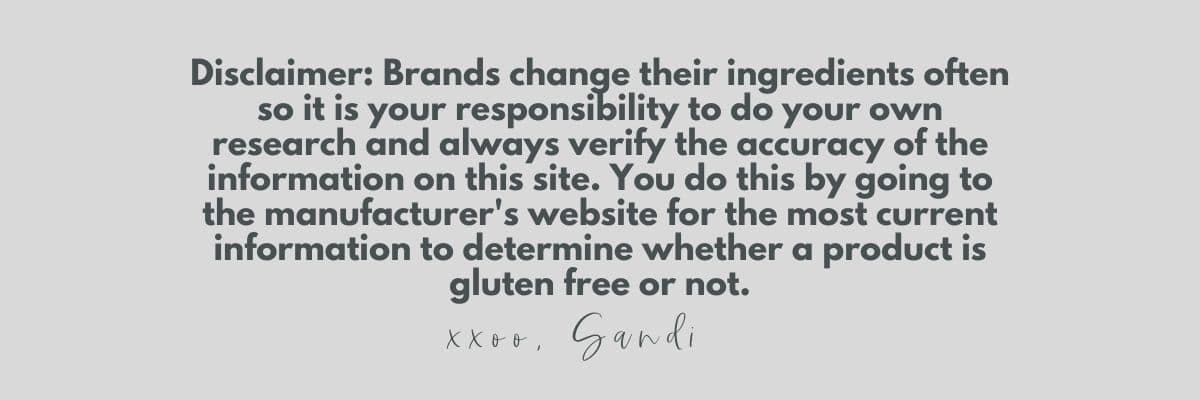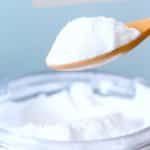Baking powder is an ingredient that you often see called for in recipes and found in baked goods. This white powder is a chemical leavener responsible for helping things like cookies, cakes, and bread rise, altering their shape.
This post may contain affiliate links. Please read our Disclosure Policy.
When baking or enjoying store-bought baked goods, you may wonder, is baking powder gluten free?

When you are gluten free because you have celiac disease or gluten sensitivity, it is critical to avoid products with gluten. Gluten comes from wheat, rye, and barley.
Suppose you have gluten sensitivity or are flat-out allergic to it. You probably already know that gluten can sometimes sneak its way into the ingredients of unsuspicious products, so it’s important to investigate every last component.
What Is Baking Powder?
Baking powder is an ingredient used in baking to give your baked goods the perfect rise. You can find it at any local grocery store. This powder has a fluffy texture and comes in a resealable can or pouch. It also changes the texture of baked foods and adds a more light and fluffy consistency.
Baking powder comprises common ingredients, including dry powdered bicarbonate of baking soda and powdered acid. This combination of an acid and bicarbonate of soda causes an instant chemical reaction, similar to the old baking soda-and-vinegar-volcano science experiment.
Usually, baking powder includes a buffer like corn starch to keep the two from reacting prematurely. You will only see baking powder in dry powder form because the two begin to react as soon as you introduce moisture.
There are two kinds of baking powder widely available on the market: regular baking powder (sometimes called aluminum-free or single-acting) and double-acting baking powder. The difference is typically just one ingredient: sodium aluminum sulfate, a second acid form.
The addition of sodium aluminum sulfate in double-acting baking powder delays the baking process, as regular baking powder will start to react once incorporated with wet ingredients. Still, it can sometimes alter the taste of baked goods. Double-acting baking powder can add a bitter, metallic aftertaste to your baking.
Email This Recipe To Me!
It is important to note that although baking powder has a long shelf life, it can expire. Baking powder is labeled with an expiration date. If your baking powder is expired, your baked goods will not rise.
Check to see what other baking ingredients are gluten free.
Answer: Is Baking Powder Gluten Free?
If you have celiac disease or are sensitive to gluten, always read the ingredient label on the baking powder container before use.
The short answer is yes, most baking powder is gluten free! The answer lies in the ingredient list! Unlike baking soda, which is commonly confused with baking powder, this leavening agent has more than one ingredient. Hence, it is very important to read the label to ensure no wheat starch is included. I know wheat starch is supposed to test below the 20 ppm limit for celiac disease, but many still get sick from eating it.
Many of the baking powders on the shelf are naturally gluten free, though they may not always be labeled. However, gluten is found in grains like wheat, rye, and barley, so including any of these grains or their byproducts would make an item not gluten free. In this case, only baking powders containing wheat starch or other such derivatives would contain gluten.
Baking powder should not have cross-contamination issues, but it is always a good idea to verify the ingredients label.
Gluten Free Baking Powder List:
There are many gluten free baking powder brands to choose from in both aluminum-free and double-acting. You will typically find baking powder in the baking aisle in your grocery store and not the gluten free section (if your store has one.)
- Clabber Girl Baking Powder
- Bob’s Red Mill
- Thrive Market (aluminum-free)
- Rumford (aluminum-free)
- Hain Baking Powder
- Ener-G
Typical Baking Powder Ingredients:
Gluten free baking powder typically has these ingredients in the mix. It is important to read the allergen statements on every can of baking powder just to be sure it is labeled gluten free.
- Sodium bicarbonate (baking soda)
- Cream of tartar
- Sodium aluminum sulfate (in double-acting baking sodas)
- Rice flour, corn flour (cornstarch), potato starch, or, in some cases, wheat starch.
It is also easy to make your own baking powder. It is easy to make, and you can store it in an air-tight container. If you make your own, be sure to check my article, Is Cream of Tartar Gluten Free?

Baking Powder Uses:
There are many ways to use baking powder. Baking powder is commonly used to give rise to cakes, cupcakes, bread, biscuits, cookies, scones, pancakes, and so much more!
Fun fact: baking powder can also be used as a household cleaning agent, but (depending on your level of sensitivity) you probably won’t have to worry about the gluten content in that instance.


